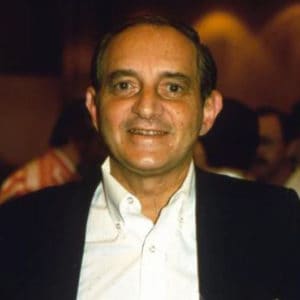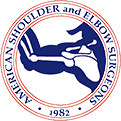Past President of ASES: 1989-1990
Dr. Melvin Post was born on June 25, 1928, in Brooklyn, New York. He received his Bachelor of Arts degree from Washington University, St. Louis, Missouri, in June 1949 and his Doctorate of Medicine from the Chicago Medical School, Chicago, Illinois, in 1954. After a 1-year internship at Brookdale Medical Center in Brooklyn, New York, he joined the US Navy, where he served 2-years, achieving the rank of Commander. Following his discharge, he began his residency in orthopaedics at Michael Reese Medical Center, completing it in 1960. Dr. Post remained in Chicago where he was a dedicated surgeon, educator, and researcher.
His long professional career included professorships at several hospitals in Chicago including Cook County Hospital from 1965 to 1985, Northwestern University Medical Center from 1968 to 1982, Michael Reese Medical Center from 1969 to 1989, and Rush-Presbyterian-St Luke’s Medical Center from 1982 until his death. While at Rush-Presbyterian-St Luke’s Medical Center, he was a Senior Attending Surgeon, a position where his commitment to education and patient care placed him in the role of a kind and thoughtful physician-educator whose students held him in their highest regard.
He was a leader who received many distinctive honors, which included the Charles Neer Award in 1987, Chairman of the Department of Orthopaedic Surgery at Michael Reese Medical Center, and Distinguished Alumnus at both Chicago Medical School and Michael Reese Medical Center. Although his awards were noteworthy, Dr. Post’s uniqueness was in his scope. He was a true renaissance man whose interests and passions ventured far beyond the medical profession. For example, very few knew that he designed and built the solar array drive connectors for the Hubble Telescope’s second servicing mission on February 17, 1997.
Dr. Post was both a student and a teacher. The student: Because his career was centered in the middle of the 20th century, he bridged 2 generations of great shoulder surgeons. He knew on a casual or intimate basis every significant shoulder surgeon of the 20th century, save for Codman. His humility and analytical mind allowed him to learn from his peers. As a result, he became an amalgamation of the strengths of these great surgeons. The teacher: He was a mentor to innumerable students of orthopaedics. He was dedicated to furthering the progress of orthopaedic science through his research, which included ceramic implants, constrained total shoulder arthroplasty, and pectoralis major transfer for scapular winging. He authored 2 texts; his first book, Physical Diagnosis of the Shoulder, was published in 1986, and his second book, Operative Shoulder Surgery, was co-edited by Drs. Bigliani and Warner in 1997. He authored dozens of articles, and it is noteworthy that he contributed to his specialty to the very end, with his most recent publication appearing in the July/August 2002 issue of the Journal of Shoulder and Elbow Surgery.
Dr. Post’s dedication and pioneering enthusiasm for orthopaedic surgery were manifested in his many memberships in medical societies. His level of expertise in the orthopaedic problems of hemophilic patients was recognized and led to his appointment to the National Advisory Council for the National Hemophilia Foundation from 1976 to 1981. In addition to being a founding member of ASES as well as a Past President, he also was involved in the founding of the Journal of Shoulder and Elbow Surgery and served as both Trustee and Treasurer from 1991 until his death. In addition, he was President of both the Chicago Orthopaedic Society from 1987 to 1988 and the Illinois Orthopaedic Society from 1988 to 1989. He was editor of Clinical Orthopedics and Related Research in 1983 and was on the Editorial Board for the Journal of Sports Medicine in 1989 as well as a Reviewer in 1994 for the Journal of Bone and Joint Surgery.
Dr. Post proved to be a pillar of society through his skills as a surgeon, his warmth and sincerity as a human being, and his willingness to support and serve the institutions that were meaningful to him. Dr. Post met the challenges of life with a response of service and action that made him a noticeable man who truly stood out from those around him. He will be remembered as a scholar, passionate physician, educator, and friend by all of those whose lives he touched.



